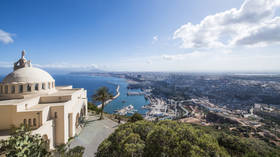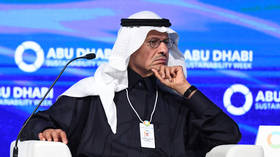Algeria cautions against Western oil price cap

The Western price ceiling on Russian oil will spark uncertainty and disrupt global trade flows, the Algerian energy minister warned on Wednesday.
The OPEC+ decision to cut output by 2 million barrels per day last November was designed to bring stability to global oil markets, Mohamed Arkab noted in an interview with information company Energy Intelligence. The official said unilateral actions by the West to limit the price of crude could undermine the efforts of the oil producers' alliance, and bring more uncertainty to the sector.
Western sanctions on Russian seaborne crude took effect last December. They ban tankers that fly the flag of any EU member state from carrying crude originating in Russia, unless it is sold to the buyer at or under an agreed price of $60 per barrel.
A similar embargo accompanied by price caps was imposed on Russian refined petroleum products in February. In response, Moscow banned sales of its crude and petroleum products to nations supporting the scheme.
The Algerian minister’s remarks echoed a recent warning from Saudi Arabia’s Energy Minister, Prince Abdulaziz bin Salman.
“If a price cap were to be imposed on Saudi oil exports, we will not sell oil to any country that imposes a price cap on our supply, and we will reduce oil production, and I would not be surprised if others do the same,” bin Salman told Energy Intelligence on Tuesday.
In February, Russia announced plans to voluntarily reduce oil production in March by 500,000 barrels per day, as it halts sales to buyers that comply with the Western-imposed price ceiling.
A number of economists have repeatedly warned that Western sanctions on Russian crude will only further tighten global supplies.
Algeria has been an OPEC member since 1969. The North African country has the tenth-largest proven natural gas reserves globally, and is the world’s fourth-largest gas exporter, with major pipeline links to Europe. It also ranks 16th in proven oil reserves, and exports roughly 60% of its total production.
For more stories on economy & finance visit RT's business section













